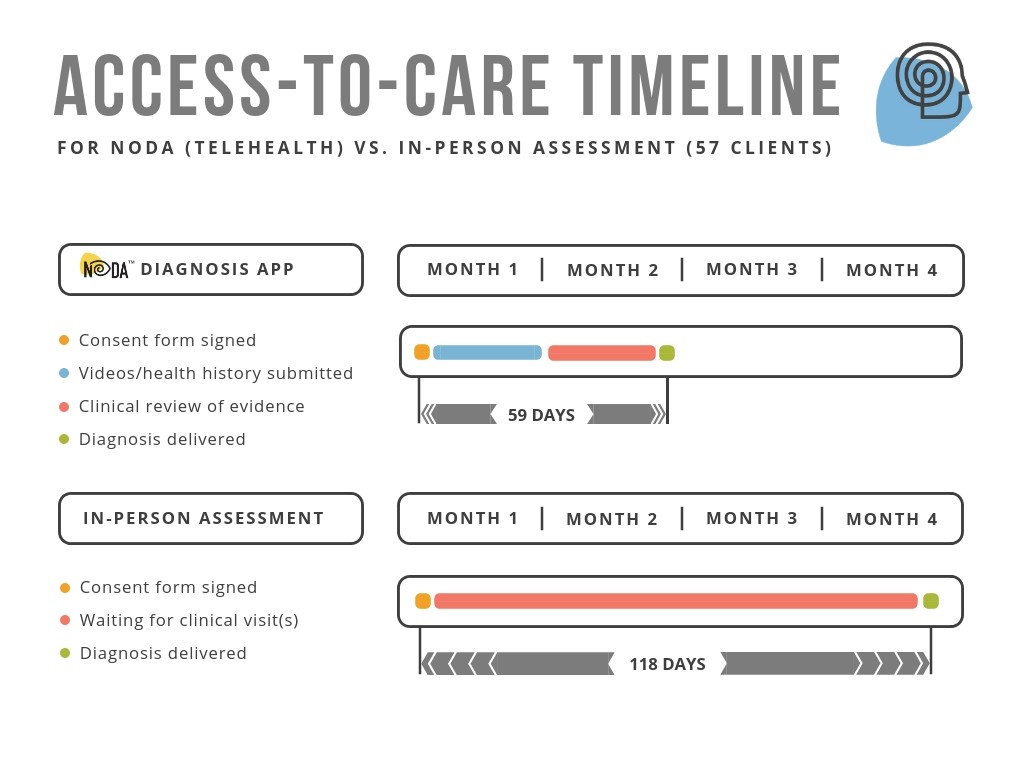Behavior Imaging®, a Southwest Autism Research & Resource Center partner, recently completed a National Institutes of Health-funded research study to compare current in-person autism assessment practices with the Naturalistic Observation Diagnostic Assessment™ (NODA), an evidence-supported autism diagnostic assessment that uses smartphone technology.
The research showed that the average total time associated with obtaining an autism spectrum disorder (ASD) assessment using the in-person method was 119 days. With the NODA method, an assessment took only 59 days. These research findings indicate that the NODA method decreases the overall time required to complete an assessment while providing acceptable levels of satisfaction for the families involved.
“We are immensely grateful to the experienced diagnosticians from participating sites who used their clinical experience to assess children earlier by the NODA method,” said Ron Oberleitner, CEO of Behavior Imaging and principal investigator of the study. “Twenty years ago, our family faced a similar challenge. Long wait times at diagnostic clinics led to us going almost two years before confirming our son Robby’s diagnosis. This approach would have been invaluable to help us get an earlier start on Robby’s treatment.”
From the beginning of January 2017 to the end of March 2018, three autism research sites participated in the project including SARRC, Emory Autism Center and the University of Idaho. Each site invited families from surrounding rural and urban communities who were seeking a developmental evaluation for autism.
“SARRC is committed to improving access to high-quality diagnostic evaluations for everyone, and NODA has the potential to accelerate this process for both rural and non-rural families alike,” said Christopher J. Smith, Ph.D, vice president and research director at SARRC. “Even though NODA is commercially available, SARRC and Behavior Imaging will continue our long-standing research relationship.”
A total of 57 families were included in this research study, of which 11 were from rural communities. Traditional in-person assessment was used for 29 families and the NODA method of assessment for the other 28 families. Families filled out two questionnaires about their experience, one after the assessment data was collected and the other three months after receiving a diagnostic report. Survey results showed both assessment methods were comparable in supporting families to get treatment if results were positive for an autism diagnosis.
Dr. Smith adds, “We are currently validating NODA Autismo, a Spanish version of the tool, and it has also been translated into Japanese and Swedish. There is also interest from Italy and Saudi Arabia for translated versions and more research.”
Developed by Behavior Imaging, NODA (Naturalistic Observation Diagnostic Assessment) is an evidence-supported autism diagnostic assessment tool available as a software service. Experienced diagnostic clinicians can use NODA to enable remote autism assessments. The service was commercially developed through a NIMH-funded series of research studies.
Learn more about NODA here.

